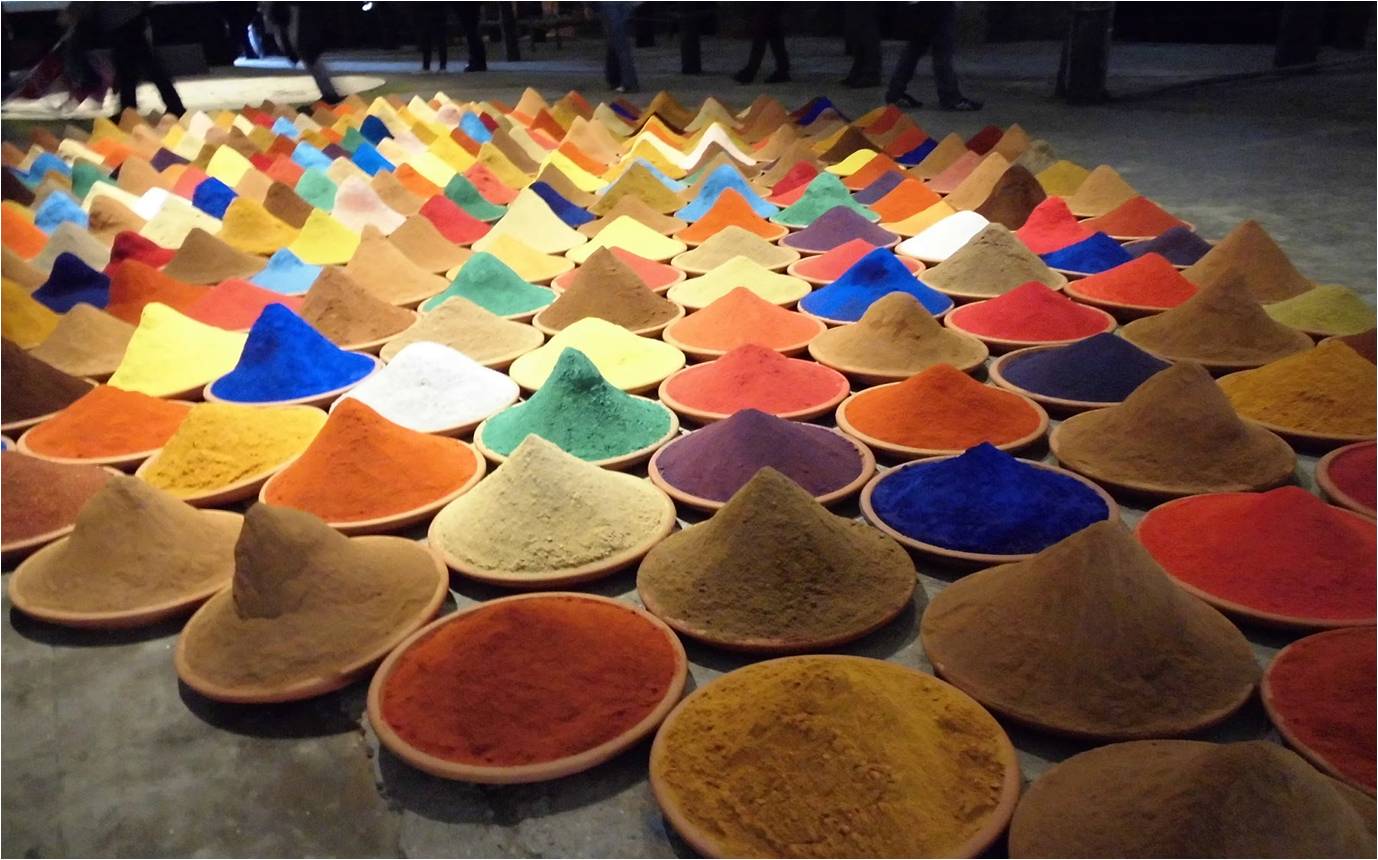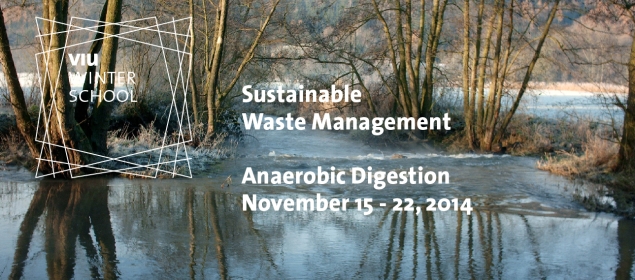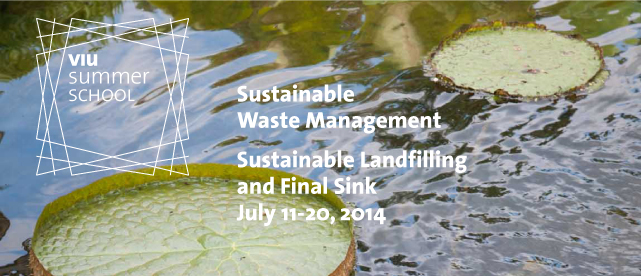The Venice International University and the International Waste Working Group (IWWG) organize intensive courses on Sustainable Waste Management.
Past editions:
Winter School on "Anaerobic Digestion: technologies, processes, design and research advancements"
Summer School on "Sustainable Landfilling and Final Sink"
Globalization, Culture and Ethics
Prof. Richard Keeley
June 1 - June 29, 2014
Trade made Venice the global city of its heyday and trade spawned innovations in bookkeeping and finance that have persisted to this day. Trade meant a remarkable fluidity between cultures and opportunities for the growth of a vigorous commercial class. Cultures—East and West, Roman and Venetian—met and clashed in Venice and on the sea but cultures were also in dialogue, witness the splendors of San Marco. Business and government worked out relations sometimes complementary, sometimes competitive. Each of these sets of themes has its parallel in the current discussions of globalization, ethics and culture.
This course will emphasize globalization and its consequences for moral reasoning; nations and transnational corporations and issues of governance and accountability; and emerging issues stemming from information and communications technology when these conflict with state purposes.
Most cultural activities will focus on visits around the city of Venice, including the Rialto bridge, Titian sites, and several markets. The program will also include a day trip to Milan.
________________________________
The Imaginary City: Why Writers Love Venice
Prof. Kevin Newmark
June 1 - June 29, 2014
Venice has always occupied a unique place in the artistic imagination of the west. Rising out of the lagoon in a riot of color, form, and texture, the shimmering reflections of Venice have come to incarnate the essence of how we think of beauty itself. This course will study some of the most important ways modern writers and thinkers have discovered in Venice an opportunity to explore and unsettle the traditional meaning that beauty holds for knowledge, art, and life. The class will consist of in-depth examination of novels, essays, films, and specific sites in the city of Venice.
Starting with the post-romantic era, the course will focus on how several literary giants refashion the beauty of Venice into a paradox of great richness and complexity. For Henry James, Thomas Mann, and Marcel Proust, the beauty that is everywhere visible in Venice also possesses a hidden side of risk and peril. The course will study the specific ways that each of these writers—along with John Ruskin before and Joseph Brodsky after them—reveals Venice to be an imaginary site of powerful tensions, traversed by the competing forces of growth and decay, desire and knowledge, truth and illusion. The course will also offer students the means for experiencing their own stay in Venice as a valuable source of self-reflection, an intellectual voyage into unfamiliar territory and waters. To encounter the beauty of Venice fully can open new perspectives on what it means to live, to love, and to understand wherever we find ourselves.
Alongside its central focus on literary masterworks from the modern European tradition, the course will also develop three complementary areas of instruction: a philosophical context stretching from Plato to Nietzsche and beyond; a cinematic dimension composed of "Summertime," "Morte a Venezia," (Death in Venice) "Don't Look Now," "The Comfort of Strangers," and "Pane e Tulipani" (Bread and Tulips); and a regular supplement of on-site visits to Venice itself—the marvel of its churches, palazzi, museums, pathways, and waterways.
Housing & Meals
Students will be housed in residence halls at Venice International University with either two or three other students. All students will receive meal vouchers for breakfast and one other meal per day. Students should budget for additional food costs.
Globalization, Culture and Ethics
Prof. Richard Keeley
May 31 - June 28, 2015
Trade made Venice the global city of its heyday and trade spawned innovations in bookkeeping and finance that have persisted to this day. Trade meant a remarkable fluidity between cultures and opportunities for the growth of a vigorous commercial class. Cultures—East and West, Roman and Venetian—met and clashed in Venice and on the sea but cultures were also in dialogue, witness the splendors of San Marco. Business and government worked out relations sometimes complementary, sometimes competitive. Each of these sets of themes has its parallel in the current discussions of globalization, ethics and culture.
This course will emphasize globalization and its consequences for moral reasoning; nations and transnational corporations and issues of governance and accountability; and emerging issues stemming from information and communications technology when these conflict with state purposes. But I will inflect the course using Venetian history, practices and places.
By the conclusion of the program, a student will:
1. Develop a good, general knowledge of the history of Venice;
2. Appreciate the historical dimensions of globalization;
3. Identify ethical challenges posed to contemporary practice of business and investigate strategies and policies responding thereto;
4. Strengthen abilities to analyze difficult business problems and present them before a general audience
5. Create, in collaboration with classmates, a study of business and culture within a Venetian sestiere.
________________________________
The Imaginary City: Why Writers Love Venice
Prof. Kevin Newmark
May 31 - June 28, 2015
Venice has always occupied a unique place in the artistic imagination of the west. Rising out of the lagoon in a riot of color, form, and texture, the shimmering reflections of Venice have come to incarnate the essence of how we think of beauty itself. This course will study some of the most important ways modern writers and thinkers have discovered in Venice an opportunity to explore and unsettle the traditional meaning that beauty holds for knowledge, art, and life. The class will consist of in-depth examination of novels, essays, films, and specific sites in the city of Venice.
Starting with the post-romantic era, we will focus on how several literary giants refashion the beauty of Venice into a paradox of great richness and complexity. For Henry James, Thomas Mann, and Marcel Proust, the beauty that is everywhere visible in Venice also possesses a hidden side of risk and peril. The course will study the specific ways that each of these writers—along with John Ruskin before and Joseph Brodsky after them—reveals Venice to be an imaginary site of powerful tensions, traversed by the competing forces of growth and decay, desire and knowledge, truth and illusion. The course will also offer students the means for experiencing their own stay in Venice as a valuable source of self-reflection, an intellectual voyage into unfamiliar territory and waters. To encounter the beauty of Venice fully can open new perspectives on what it means to live, to love, and to understand wherever we find ourselves.
Alongside its central focus on literary masterworks from the modern European tradition, the course will also develop three complementary areas of instruction: a philosophical context stretching from Plato to Nietzsche and beyond; a cinematic dimension composed of "Summertime," "Morte a Venezia," (Death in Venice) "Don't Look Now," "The Comfort of Strangers," and "Pane e Tulipani" (Bread and Tulips); and a regular supplement of on-site visits to Venice itself—the marvel of its churches, palazzi, museums, pathways, and waterways.
________________________________
Drawings from the Venetian Masters
Prof. Alston Conley
May 31 - June 28, 2015
Classes will introduce basic drawing skills and then we will apply them by drawing from masterworks. The course emphasis therefore is twofold: first, the command of basic formal concepts and skills: the page, how mark, shape, value, scale, and composition interact to become a visual language, and secondly, an introduction to the great masterworks of Venice. The goal of this class is to connect to that tradition by synthesizing, visual language, images that one would want to contemplate and retain. Much of the class time will be spent visiting museums and churches to view and draw from the great works. The class will challenge the students to absorb and understand the visual cultural of Venice; it's traditions and achievements.
Housing & Meals
Students will be housed in residence halls at Venice International University with either two or three other students. All students will receive meal vouchers for breakfast and one other meal per day. Students should budget for additional food costs.
The Venetian Empire and its Imperial Piety: Catholic Christianity
Instructor: Sam Miglarese
May 25- June 28, 2014
The course will examine the religious, doctrinal,spiritual and hagiographic traditions of Catholic Christianity as it was lived in the Empire of Venice through religious art as well as current devotional practice, ceremonies and traditions still extant today. Topics will include the place of Jesus Christ, the Virgin Mary, the Evangelist Mark and other saints in Catholic life and thinking then and now. Excursions into the churches and art galleries will illustrate the power of the religious sensibilities in imperial Venice. We will study the influence of relics and the history and legends attached to the saints connected to the political history of Venice. We will also use Shakespeare’s The Merchant of Venice to explore Jewish presence in Venice. Several cultural/religious events, concerts, and field trips are planned. This course will be taught in English by Dr. Sam Miglarese, adjunct instructor in the Religion Department at Duke, and Director of Community Engagement for Duke’s Office of Durham and Regional Affairs. He led the Duke in Venice program in Summer 2007 and lived in Italy for six years.
Meals and Accommodations
Students will be housed in double rooms in a dormitory of Venice International University (VIU), located on the scenic island of San Servolo. Each room will have a private bath. Breakfast, lunch, and dinner will be served in VIU's cafeteria Monday through Friday; students will also be given a set of vouchers/meal passes that can be used in the VIU cafeteria and also in a wide network of cafés, restaurants, and supermarkets. The vouchers are valid nationwide, so students can use them while traveling in Italy. There are no kitchen facilities in the dormitory.

Food for Thought:
Understanding Italian Society and Culture through its food
Instructor: Luciana Fellin
June 3 - July 4, 2015
Food is an important element in the development of individual and cultural identity. The production, preparation and consumption of food have played a particularly important role in the development of Italian culture. From the excesses of the Roman table, to the “bread” of the Fascist war effort, to today’s “Slow Food” movement, it is often through food that Italians have asserted and defended their cultural heritage; some would say even imposed it. In recent years, Italy has witnessed what the Wall Street Journal has dubbed “gastronomic nationalism” and under the guise of defending local identity some Italian municipalities have attempted to ban ‘ethnic foods’ from their city centers. With food production, distribution, and consumption are also a nexus of social, political and economic interests, which raise ethical questions: food waste and food accessibility, environmental impact, gastronomic racism, economic protectionism.
In this course we will examine food stuffs (products) and food ways (practices and rituals revolving around food) to understand their cultural significance, to gain insight into culturally specific ways of thinking symbolically about food, and to explore the political consequences engendered by food production distribution and consumption. We will read about the cultural similarities and differences of Italian cuisines as well as their histories, we will visit places where local food is grown and processed, and we will gain insight to Italian culture through experiencing its food ways, that is, by actually selecting, preparing and eating food. Venice is a terrific site for exploring these issues. It is home to a fish market that is over 900 years old, the bulk of the produce sold at its daily market is produced in Sant Erasmo, known as Venice’s garden/farm island and its cuisine is at the same time locally and globally rooted with influences from its long history of cosmopolitanism.
Meals and Accommodations
Students will be housed in double rooms in a dormitory of Venice International University (VIU), located on the scenic island of San Servolo. Each room will have a private bath. Breakfast, lunch, and dinner will be served in VIU's cafeteria Monday through Friday; students will also be given a set of vouchers/meal passes that can be used in the VIU cafeteria and also in a wide network of cafés, restaurants, and supermarkets. The vouchers are valid nationwide, so students can use them while traveling in Italy. There are no kitchen facilities in the dormitory.




















